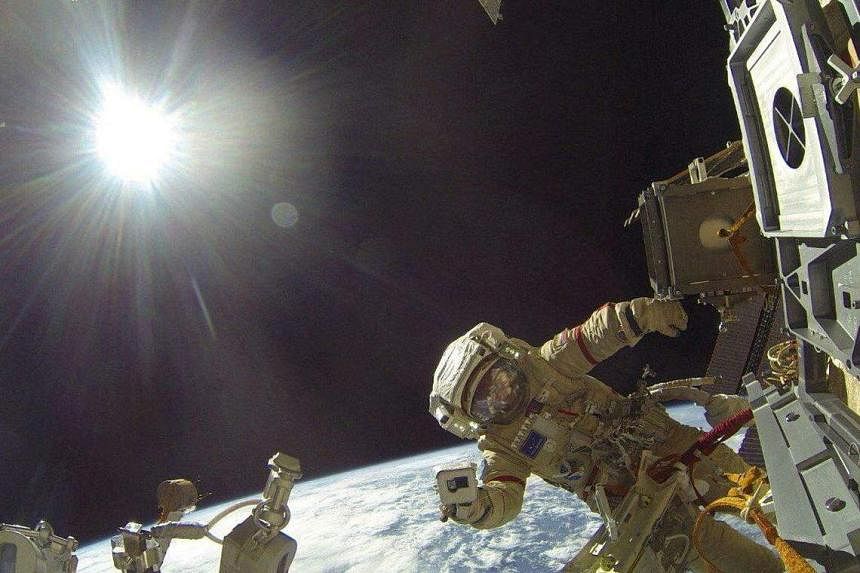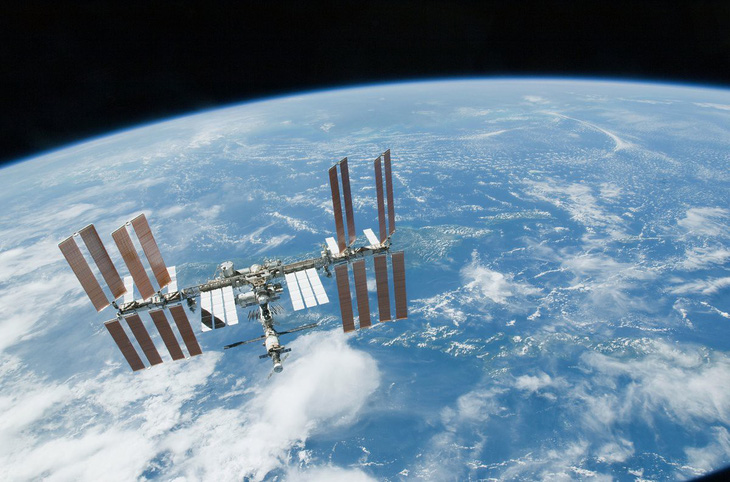Yuri Borisov, head of the Russian Federal Space Agency (Roscosmos), said that Moscow's participation in the international space project has been extended. "According to the government 's decision, the operation of the ISS project has been extended until 2028," Borisov said on the Day of Cosmonautics (April 12) in Russia.
That meant the country decided to extend its mission to the ISS until 2028. However, last July, Moscow said it would leave the ISS "after 2024", as relations between the Kremlin and the West frayed over Russia's military campaign in Ukraine.
Borisov also said that “it is time” to discuss the creation of a Russian orbital station. The head of the Roscosmos space agency had mentioned this in July 2022.

A photo released in 2022 shows Russian cosmonaut Sergey Prokopyev performing a spacewalk outside the International Space Station (ISS). Photo: Reuters
Speaking to TASS news agency on April 12, Mr. Borisov said that Russia is working to build its own space station, organize missions to the moon and mass produce spacecraft, including a new spacecraft called "Orel" (Eagle).
Roscosmos has shared a sketch of a space station that will replace the ISS, called the Russian Orbital Service Station (ROSS), which will have automated functions and astronauts who can visit it for maintenance and equipment replacement. The advantage of ROSS is that it is modular and can be transformed, has a longer service life, operates for the benefit of defense and security, and is used to assemble an interplanetary exploration system.
Space experts say building a new orbital station could take more than a decade.
According to RT , Borisov predicted that the ISS, which NASA plans to maintain until 2030, will “collapse” by then unless a large amount of money is invested in its repair, and stated that maintaining the ISS in orbit is no longer cost-effective for Russia due to the current geopolitical environment. In addition, Russian modules on the ISS have reached the end of their lifespan.

International Space Station. Photo: destinationspace.uk
In November 1998, at a time of increased cooperation between the United States and Russia following the Cold War “space race,” Russia launched the first component of the ISS, the Zarya (Dawn) module, from the Baikonur Cosmodrome in Kazakhstan. Two years later, the first crew was launched to the ISS.
ISS partner countries including the US, Russia, Europe, Canada and Japan are currently only committed to operating the space station until 2024, although US officials have said they want to continue until 2030.
The space sector is one of the few remaining areas of cooperation after the sharp tensions between the US and Russia, since Moscow began its military campaign in Ukraine.
Source
























![[Photo] National Assembly Chairman attends the seminar "Building and operating an international financial center and recommendations for Vietnam"](https://vphoto.vietnam.vn/thumb/1200x675/vietnam/resource/IMAGE/2025/7/28/76393436936e457db31ec84433289f72)












































































Comment (0)